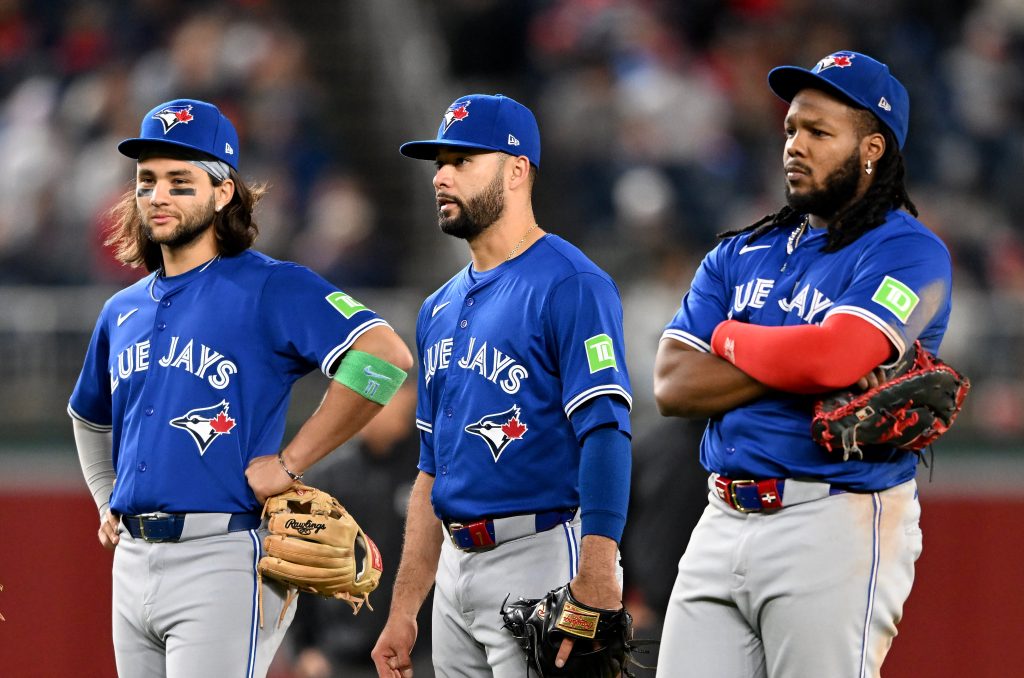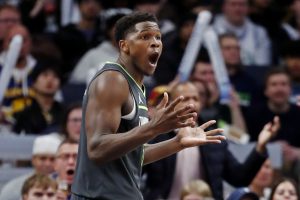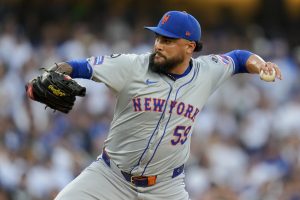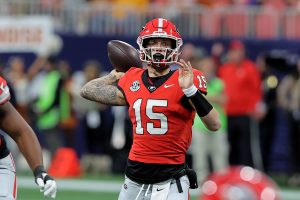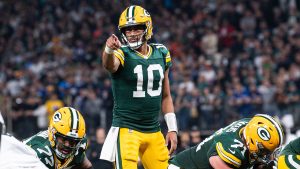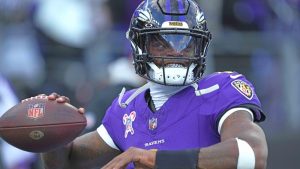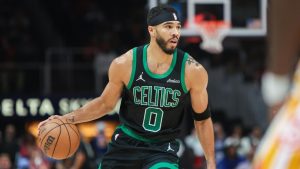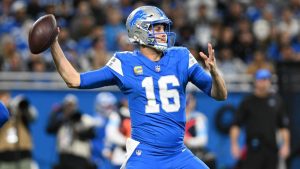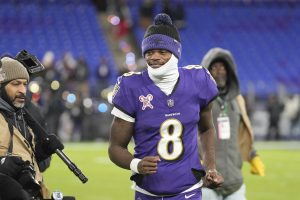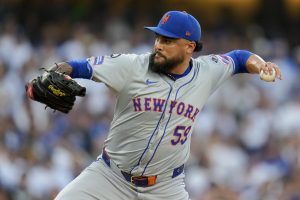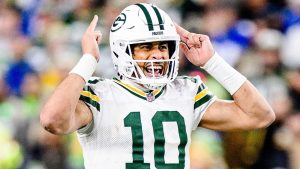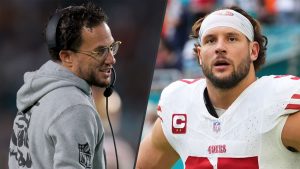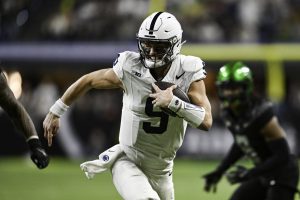The Braves, Blue Jays and Padres are among the teams that have yet to join the winter spending spree.
As the holiday season beckons, some ballclubs appear content to wait for the new year to kick-start their offseasons.
With baseball winter nearly halfway over and just 97 days until Opening Day, the transaction logs of many a contender remain relatively untouched. Predictably, deep-pocketed juggernauts such as the Dodgers, Mets and Yankees have been quite active, but lower-budget operations such as the Orioles, Guardians and Athletics have been aggressive as well.
Let’s hop in and investigate a few clubs that have been disappointingly static so far this offseason.
Atlanta Braves
The explanation for Atlanta’s subpar 2024 season is simple and boring: injuries. Losing Spencer Strider and Ronald Acuña Jr. — a top-five pitcher and a top-five hitter — for large swaths of the season was dooming and damning. But while the Braves expect to have both back for much of 2025, this team needs upgrades elsewhere.
Yet thus far this offseason, the Braves have been outrageously quiet. The most notable news nuggets out of Truist Park have had to do with players departing the organization. Atlanta declined a team option on longtime backstop Travis d’Arnaud, non-tendered veteran outfielder Ramon Laureano and allowed frontline hurler Max Fried to depart in free agency. Fried, a staple of this Braves era who pitched a gem in the 2021 World Series clincher, did not seem to receive a competitive offer from the only big-league team he had ever known.
All Atlanta has done so far this winter is add corner outfielder Bryan De La Cruz — one of baseball’s worst hitters in the second half last season — on a split contract. The Braves need another outfield bat, particularly if Acuña isn’t healthy for Opening Day, and another starting pitcher to replace the likely departing Charlie Morton. Currently, they have Grant Holmes and Ian Anderson penciled into the five-man rotation until Strider returns.
Thankfully, there’s a bit of room for typically creative president of baseball operations Alex Anthopoulos to maneuver, even if there’ve been few indications that the Braves intend to spend big. Atlanta’s payroll currently rests at $201 million, $31 million beneath their season-end figure. Still, a shorter-term deal for a veteran arm such as Max Scherzer, Walker Buehler, Andrew Heaney or José Quintana to fill Morton’s spot feels like the most likely path forward.
Anthopoulos often has something funky up his sleeve, but don’t expect a big-money play for Corbin Burnes or another top-shelf free agent. And frankly, the Braves are already set with talented players under long contracts at so many positions that Anthopoulos can afford to focus on supplementing the club around the edges.
Toronto Blue Jays
The Blue Jays are at least trying — desperately so — to upgrade their ballclub.
Good thing, too, because the pressure up north is mounting. Toronto was one of the most disappointing stories of 2024, a soggy, underwhelming, depth-less facade of a ballclub. Projected by many as a playoff contender, the Jays managed just 74 wins, good for last place in a relatively lackluster AL East.
This current era of Jays baseball — led by team president Mark Shapiro, GM Ross Atkins and cornerstone players Vladimir Guerrero Jr. and Bo Bichette — has not won a postseason game. All they have to show for this once-promising competitive window are a trio of wild-card sweep defeats in 2020, 2022 and 2023.
Now the clock is ticking. Guerrero and Bichette are both one year from free agency. Shapiro has one year remaining on his deal; Atkins has just two. Barring a heroic resurgence, this franchise and fan base will rue this particular epoch as a monumental missed opportunity.
Which explains why the Jays have been tied to nearly every major free agent — all of whom, thus far, have landed elsewhere. At present, the Jays stand empty-handed, though that’s not a result of passivity. Toronto was in the mix for Juan Soto, having made a serious offer well over $700 million. They met with left-hander Max Fried, who ended up a Yankee. They chased Cody Bellinger via trade, but he also went to the Bronx.
The winter is not over. There are still a plethora of big fish on the open market, including Corbin Burnes, Alex Bregman, Roki Sasaki and Teoscar Hernández. Toronto, if it wants to seriously contend in 2025 and make something of this era, must reel in one of them.
San Diego Padres
Just existing, for the San Diego Padres, is an expensive proposition.
Year-over-year contract bumps for Fernando Tatis Jr., Yu Darvish, Jake Cronenworth, Yuki Matsui and Wandy Peralta add up to more than $21 million in additional spending. Arbitration raises for Luis Arraez, Dylan Cease, Michael King and Jason Adam could tally past $17 million. All together, San Diego’s roster is going to be more than $30 million higher in 2025, despite losing Ha-Seong Kim and his $8 million annual salary in free agency.
For the Padres, who have reduced spending since the passing of beloved, free-wheeling owner Peter Seidler, that’s an imposing outlook. GM AJ Preller deserves credit for his aggressive team-building strategy, but operating that way for so long is beginning to leave cracks in the foundation. A trade of Cease or Arraez, both a year from free agency, might be necessary to open up some spending space, similar to the team’s dealing of Juan Soto last winter.
The great shining hope of San Diego’s offseason, it seems, is Japanese phenom Roki Sasaki. Many around the industry see the Padres as co-favorites for the flame-thrower’s services, alongside the rival Dodgers, who dramatically bounced San Diego in the 2024 NLDS. If Preller reels in Sasaki, it would give the Padres a cheap, controllable difference-maker and afford them the ability to hang on to Cease or Arraez. Otherwise, Preller might have to get creative to reinforce his roster, which has a hole in left field created by the likely-to-leave Jurickson Profar.
Detroit Tigers
After delivering perhaps the most heartwarming surprise of 2024, Detroit has yet to carry that momentum into a meaningful, needle-moving transaction this offseason.
The Tigers inked starting pitcher Alex Cobb to a one-year, $15 million deal, a hefty sum of money for a 37-year-old pitcher who hucked just 16 1/3 regular-season frames in 2024. It’s an upside gamble on a veteran arm, but Cobb is far from a sure thing, particularly for a team such as Detroit hoping to establish itself as a consistent contender.
Baltimore, Tampa Bay and the Athletics are the only American League clubs currently projected to enter 2025 with lower payrolls than Detroit’s measly $104 million figure. A whopping $35 million of that sum is tied up in two expensive, aging roster-cloggers: Kenta Maeda and Javier Báez.
The Tigers’ 2024 Cinderella story was made possible by a deep, high-floor roster of interchangeable contributors. That dynamic affords president of baseball operations Scott Harris a bevy of options for upgrading his roster. Alex Bregman, Pete Alonso and Teoscar Hernández could all fitpositionally. And the Tigers should also search for another impact starting arm so they don’t need to lean on “pitching chaos” like they did in 2024.
Washington Nationals
There were reasons for baseball hope in the nation’s capital last season, but the Nats have spent November and December in utter dormancy.
And that’s a shame because with a few adds, this team could be pretty pesky. Washington’s payroll is currently projected for $86 million, the third-lowest in the National League, ahead of just Miami and Pittsburgh. Forty percent of that is due to Stephen Strasburg, the fallen, physically embattled World Series hero who will never throw another pitch for the club. But with Patrick Corbin’s hefty salary off the books, the Nats should be spending this offseason.
A gaping hole at first base seems a perfect fit for Pete Alonso or one of the other free-agent first basemen. Dylan Crews and James Wood are tantalizing outfield talents, but there’s room in the grass for a veteran presence beside them. And even though the Nats gave starter Michael Soroka $9 million, they desperately need a more impactful presence to lead their young rotation.
It was not a shock that the Nationals didn’t reunite with Juan Soto. But fans are understandably disappointed that their club did not, at any point, seem seriously involved in the sweepstakes. This ownership group’s appetite to spend remains a huge unknown and will dictate how the next era of Nationals baseball unfolds.
